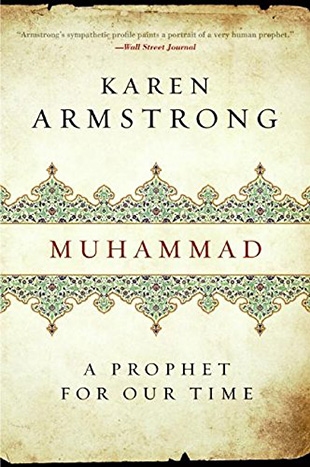"It is often said that Islam is a religion of the desert, but this is not true. The old tribal ethic affected the Qu'ranic message, but the new religion was first received by the Arabs of Mecca in an atmosphere of cut-throat capitalism and high finance. Like all the great confessional religions and the philosophical rationalism of Greece, Islam was a product of the city. This seems odd to those of us who have been brought up to consider the unworldly Jesus of Nazareth as the epitome of the religious spirit. We would not expect a prophet to rise in the City of London or in Wall Street. But Hinduism, Buddhism, Jainism, and Confucianism all sprang up in the market-place. The Greek philosophers taught in the agora and the great prophets of Israel were beginning to leave the nomadic life behind them. These world religions had all developed in the commercial atmosphere of city life, at a time when merchants were beginning to wrest some of the power which had once been solely in the hands of kings and the aristocratic and priestly castes. The new prosperity drew people's attention to the disparity between rich and poor and made them deeply concerned with problems of social justice. All the great religious leaders and prophets had addressed themselves to these issues and provided their own distinctive solutions. At the beginning of the seventh century, when the Quraysh and some of the other Arabs were leaving the old nomadic life behind and were becoming aware of the social problems of the settled life, the Prophet of Islam brought a new religious message to the Arabs.”
Muhammad A Biography of the Prophet
Karen Armstrong on having a passion for justice in an urban culture.
